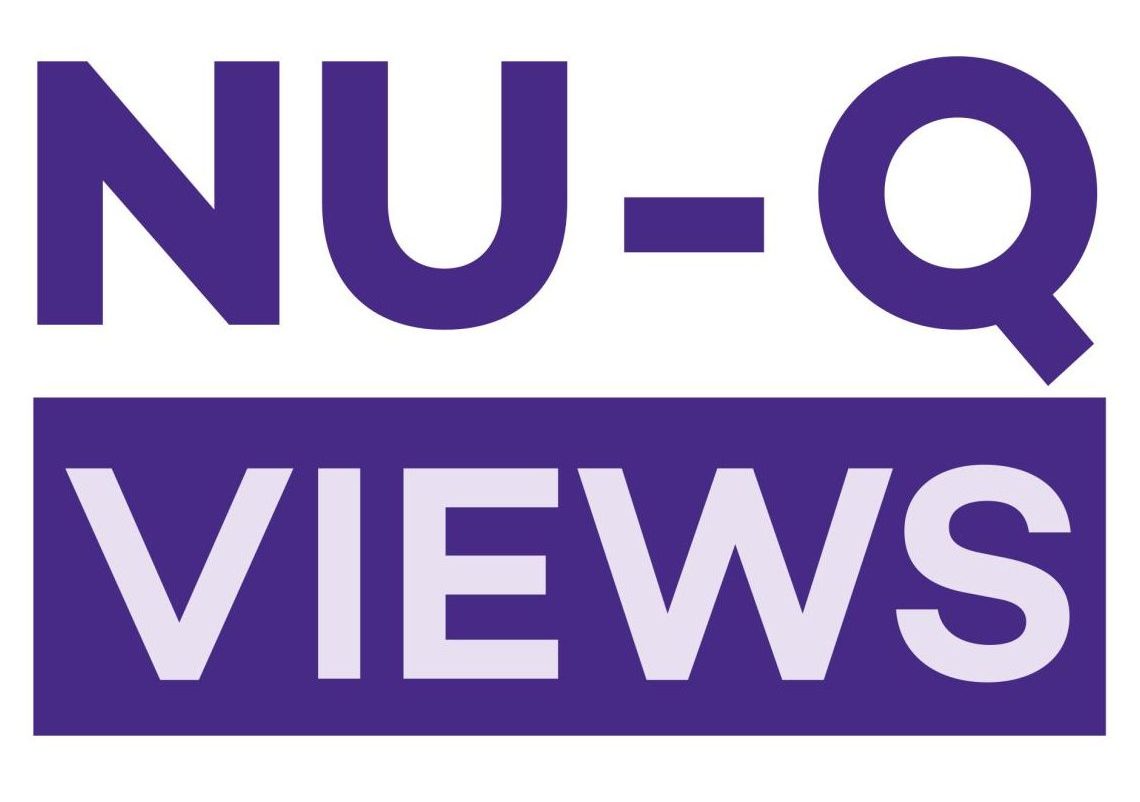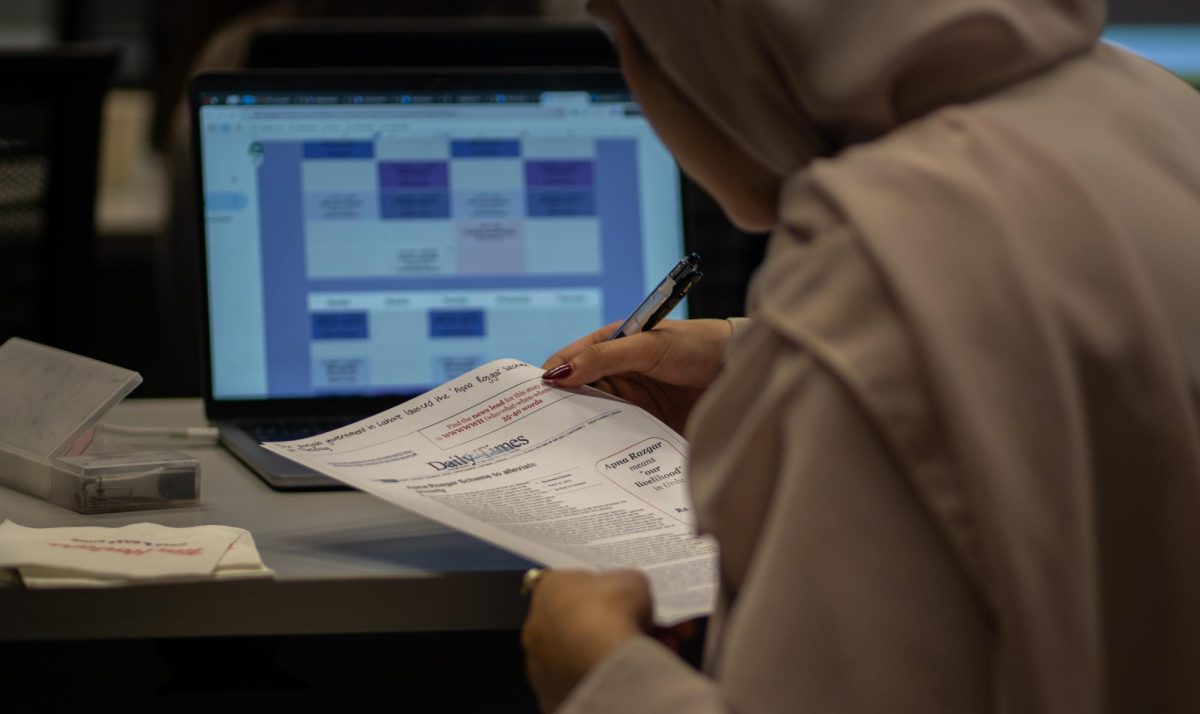Fingertips pinched the frayed edges of thin paper sheets as eyes traced every line and sentence with fascination. For Marda Dunsky, burying herself in the daily newspaper was not just a habit she picked up from her childhood; it was a pastime that nurtured a lifelong instinct for writing.
As an associate professor within the Journalism and Strategic Communication program at Northwestern University in Qatar (NU-Q), Dunsky’s path within academia has been shaped by a rich personal, academic, and professional journey.
Her recent contribution to the journalism bootcamp that kicked off the fall semester of 2025 showcased her long-cultivated expertise in journalistic writing.
At the bootcamp, Dunsky spoke with NU-Q Views about her own story—from being primed by the world of journalism to now priming NU-Q’s journalism students into becoming the storytellers of the future.
Q: How did you discover your passion for journalism?
A: I grew up realizing from a relatively early age that I was better at English and writing subjects than science or math. The motivation was being able to write well and being interested in the process of getting information. As I started practicing journalism, even as a student, I really enjoyed the process of interacting with sources, going out and getting stories, then reporting on them.
Q: What were your studies as a journalism student like?
A: I went to the University of Illinois Urbana-Champaign. My undergraduate experience was fairly typical in that it was a mix of academic work and extracurricular activities. I did work as a reporter and a copy editor for the student newspaper, the Daily Illini. When I finished my undergraduate experience, I took a gap year and spent some time here in the Middle East traveling. And then, I went back to the United States and started working.
Q: What do you always keep in mind whenever you’re on the field?
A: Follow a process that allows you to bring the most accurate and truthful representation of what you’re writing about to your readers. The audience is relying on you to be truthful and to be accurate. The other thing that I’ve always kept in mind is that to be part of this process—whether as a gatherer of information, as a reporter, or as an editor—is exciting and useful. Reporters often stand in for their audiences by talking to people their audiences can’t talk to directly and observing firsthand certain events and situations that their audience can’t observe directly. This is very gratifying, and it’s not something to take for granted. In other words, it’s an aspect of being a journalist which is not only enjoyable but also requires responsibility.
Q: Why did you transition into academia?
A: When I worked full-time as an editor at the Chicago Tribune, I also taught copy-editing courses on a part-time basis at Northwestern University’s Medill School of Journalism. I really enjoyed teaching, so when a job offer to teach full-time at Medill came along, it seemed like a natural fit and an easy transition to put my professional journalism experience to use in an academic setting. I didn’t plan this career transition—it came about serendipitously.
Q: Which of your journalistic projects is most important to you?
A: It’s a book called Stories from Palestine. It was published in 2021 by the University of Notre Dame Press in the United States. This is a work of journalism. It’s not a work of theory.
This, up until now, represents the culmination of my journalistic practice. I also use this book in my teaching to show my students how I approached this topic as a journalist: These were my methods. These are the stories that I wrote based on using these journalistic methods. These are what the stories themselves say about the experience of the people whom the stories belong to.
Q: Who/what primed the journalist in you?
A: My parents were always very supportive, and they always encouraged me to do what interested me. It was having this relative freedom and privilege to develop my skills and make my choices without being discouraged in any way.
Q: What’s a key takeaway you hope students remember from the bootcamp?
A: It doesn’t matter if you’re a print journalist, a broadcaster, or a documentarian; writing is central to all of those processes. The ABCs—accuracy, brevity, clarity—are very basic concepts that we always have to keep in mind when we do our work.
Q: What is your advice for journalism students?
A: If you have a passion for what you’re doing, and if you can see and believe that what you want to do has value, that is important. But there’s also an element of this where you’re contributing something. These are the two things I would encourage people to keep in mind. It’s partially about our own fulfillment and partially about having the potential to benefit other people directly or indirectly.







